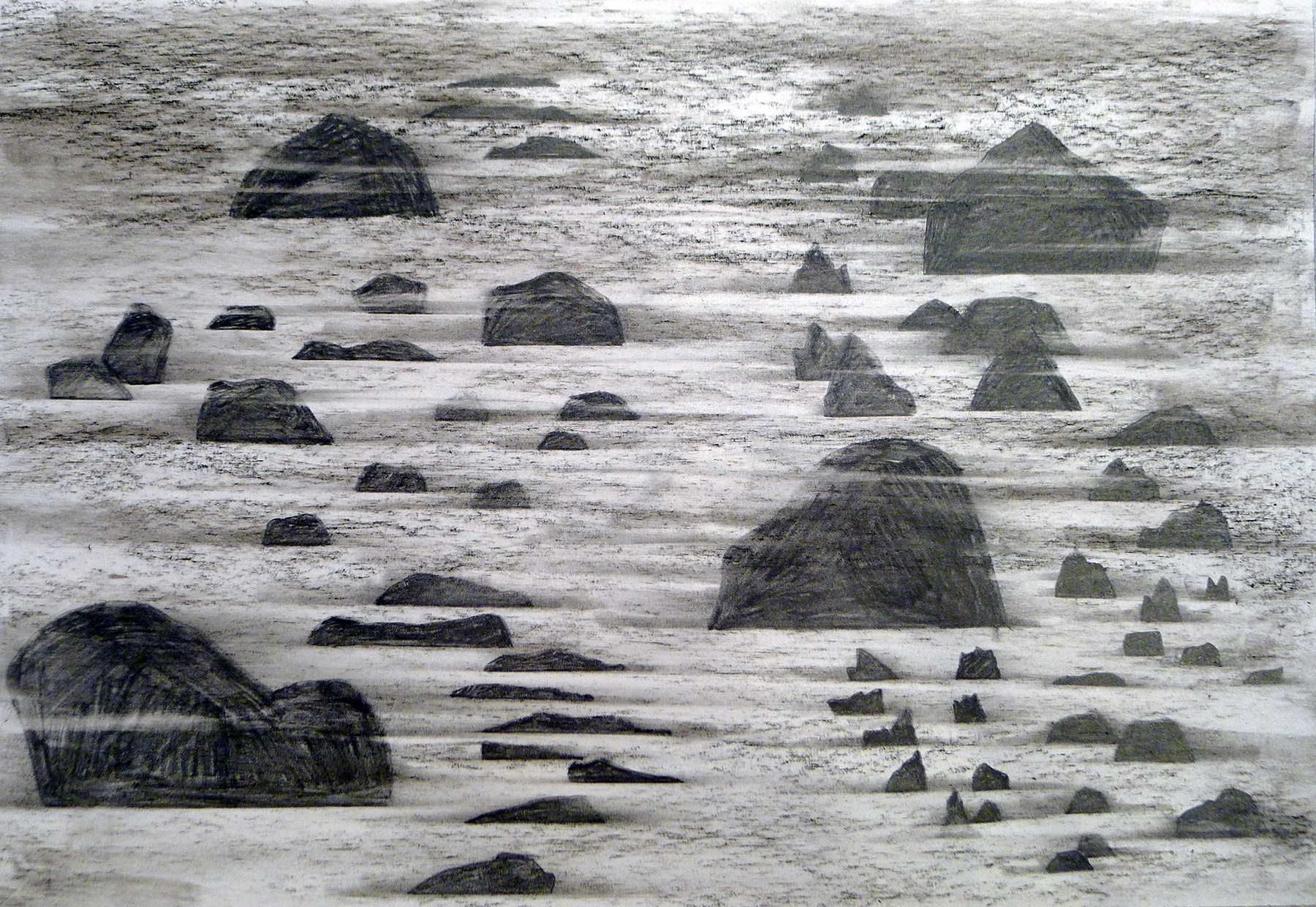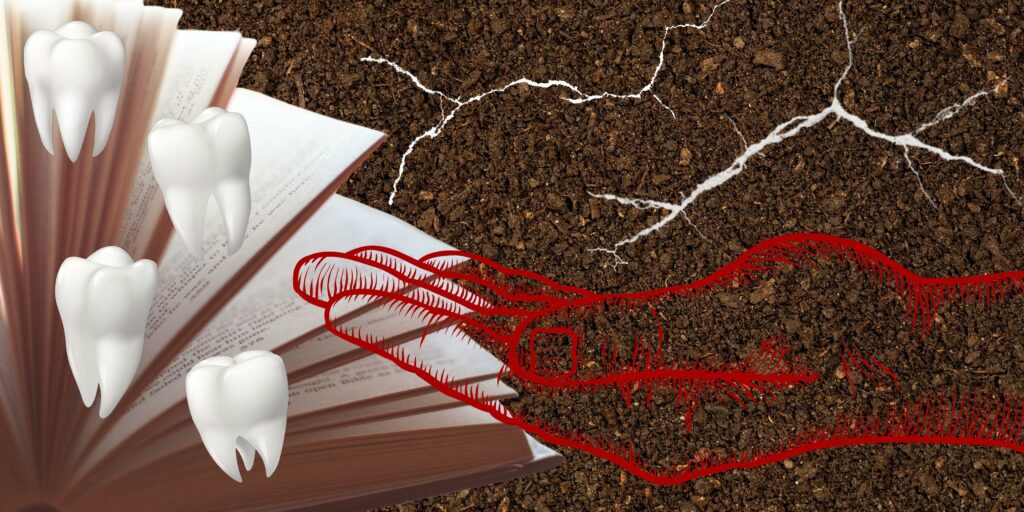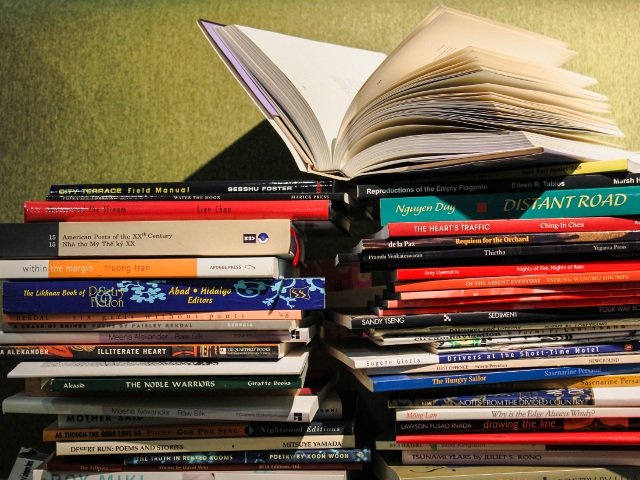Hindi na ibinalik / ng mga dayo ang kinuhang / lupain | The settlers never returned / the land they grabbed

March 30, 2023
This piece is part of the Climate notebook, which features art by Katrina Bello.
Hindi maaari ang mga salita
o ang lupa
ayon sa mga Tboli ng Maitum.
Maaaring hindi sapat
ang kabayo mulang Kastila
kaya inangkin
ng mga dumayo noon
sa timog Mindanao
ang nadatnang kuda o kura,
ang maliit na kabayong
pinanggagalugad sa lupain.
Hindi na ibinalik
ng mga dayo ang kinuhang
lupain at kanilang ginalugad
ang karagatan
sakay ng bangkang pakura,
ang kabayo ng katubigan.
Words cannot be owned
and neither can the land
according to the Tboli people of Maitum.
It is likely that the word kabayo
from Spanish was not enough
for the long-ago settlers
of southern Mindanao,
so they claimed as their own
the native kuda or kura,
and used
the small wild horse
to explore tracts of land.
The settlers never returned
the land they grabbed
and the sea
they explored using pakura boats,
the horse of the waters.
Translator’s Note
“Origin (Orihen)” is the opening poem to M. J. Cagumbay Tumamac’s poetry collection, Sbù, Maitum, Dadiangas. Sbù, Maitum, and Dadiangas are names of places in Mindanao, the southern region of the Philippines that was not as heavily infiltrated by Spanish colonial forces compared to the northern areas of the Philippines. “Origin” touches on environmental colonialism and settler colonialism’s impact on native languages. In translating the poem, I prioritized recasting the meaning in what for me is clear English instead of preserving the Filipino-English linguistic equivalence of each line. The fifth and tenth lines in the English translation only vaguely correspond to their counterparts in the source text—just one of the many ways a translation breathes as it approximates a gap, a leap, a loophole when transacting between two languages.
—Kristine Ong Muslim
This poem was first published in Talas: An Interdisciplinary Journal in Cultural Education 2019, Volume 4.



